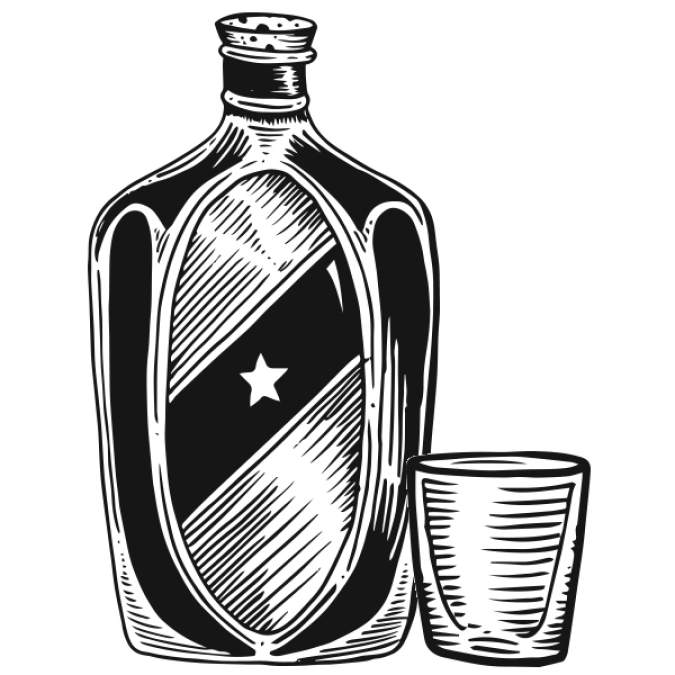What do you get when you mix eight super-skilled female bartenders, four hyper-knowledgeable (and occasionally cranky) judges, and a few hundred restaurant industry types with several hours to indulge in an open bar? One of the more uniquely engaging competitions I’ve witnessed, complete with controversial judging, feats of athletic prowess, and a lot of money raised to support breast cancer treatment and research, as well as one hell of a fun afternoon.
The base concept for Speed Rack is simple. Two lady bartenders go head-to-head, charged with making four classic cocktails in as little time as possible. Whoever finishes first advances to the next round. Of course, just pouring booze into a glass isn’t enough: each drink is judged, with the arbiter having the option to add time penalties for a variety of flaws. Thus, initial speed is important, but so is technique, accuracy, and style.
Drawing from a pool of amazing talented female bartenders in Seattle, Portland, and Vancouver, the field of 22 had been whittled down to just eight by the time we arrived for the quarterfinals. As befits an event focused on bartending, many luminaries in the Seattle bartending scene were there to either compete, judge, volunteer, or just take it all in, which gave the crowd a knowledgeable and decidedly partisan vibe.
During the quarterfinals, it became clear that there were three prime contenders: Amanda Reed of Tavern Law, Missy Cross of Sun Liquor, and Angel Teta of Portland’s Ataula. Cross, and Reed in particular, were masterful technicians, with no wasted movements. During her quarterfinal match, Reed blazed through her four cocktails in 1:29, and barely looked like she’d broken a sweat. Right then, she became my odds-on favorite. Teta on the other hand was a blur: fast, but a bit sloppy, something the judges dinged her for in both the quarterfinals and semifinals.
Now, for this bartender, competing on stage in front of a crowd and judges seems like a nightmare come to life. Yet speaking to Kelsey Ramage of Vancouver’s Oakwood Bistro after her quarterfinal loss, it was clear that the thrill of competition is what drew most of these women in. “It was crazy intense,” she said. “I’d left the easiest drink for last, and then I forgot what it was! I’ll be back next year for sure though.”
Competitors were given a list of approximately 50 classic cocktails to study in preparation for the event. Founders and hosts Lynnette Marrero and Ivy Mix made it clear that the idea was to test the bartenders on the classics, because they’re the foundation to just about every drink. They’re also drinks that are simple in terms of ingredients, but tricky to execute properly, especially under pressure.
The semifinals were both extremely tight affairs. In the first, Teta managed to advance with a one-second victory despite forgetting an ingredient (lime juice) in her Last Word. That earned her a massive 30 second penalty, but she’d finished so much faster than her opponent that she still squeaked by.
Meanwhile, Reed and Cross went head-to-head in the other semi, ensuring Seattle a spot in the finals. This was the first moment that controversial judging reared its head: Cross was given a massive penalty for not properly balancing the brandy and rye in her Vieux Carre, which gave Reed a narrow victory and a spot in the finals.
It was perfectly set up as a contrast of styles: Reed’s cool, composed, almost easy speed versus Teta’s frantic energy. Naturally, the final round of cocktails were extra demanding: a Brainstorm (Irish whiskey, dry vermouth, Benedictine), a Rosita (tequila, Campari, sweet and dry vermouth, bitters), a Blood and Sand (Scotch, orange juice, Cherry Heering), and a Dealer’s Choice, in this case a take on the Ramos Gin Fizz, but with tequila, grapefruit juice, and St. Germain. That’s also a drink that requires an egg white, necessitating at least two separate shakes to properly build the foam.
After a frenetic couple of minutes, Teta finished some 15 seconds faster than Reed, who seemed a bit bedeviled by the egg white drink. When the time came for judging, it was clear why: she had never heard the request for tequila in the drink, and had made it with gin instead. After a consultation (and perhaps some lobbying from the hometown crowd), it was decided that she’d be judged on the drink she’d made, which was apparently quite good.
Still, after all the time penalties were added, it was Portland’s Angel Teta who received the title of Miss Speed Rack Seattle, and a spot in the National Finals in New York City. The pro-Seattle crowd was disappointed, but a loyal Portland contingent stormed the stage to celebrate. Walking out the door, the discussion in the room had already turned to the after party, proving that you can’t keep bartenders down for long, at least not as long as someone has another drink ready for them.







